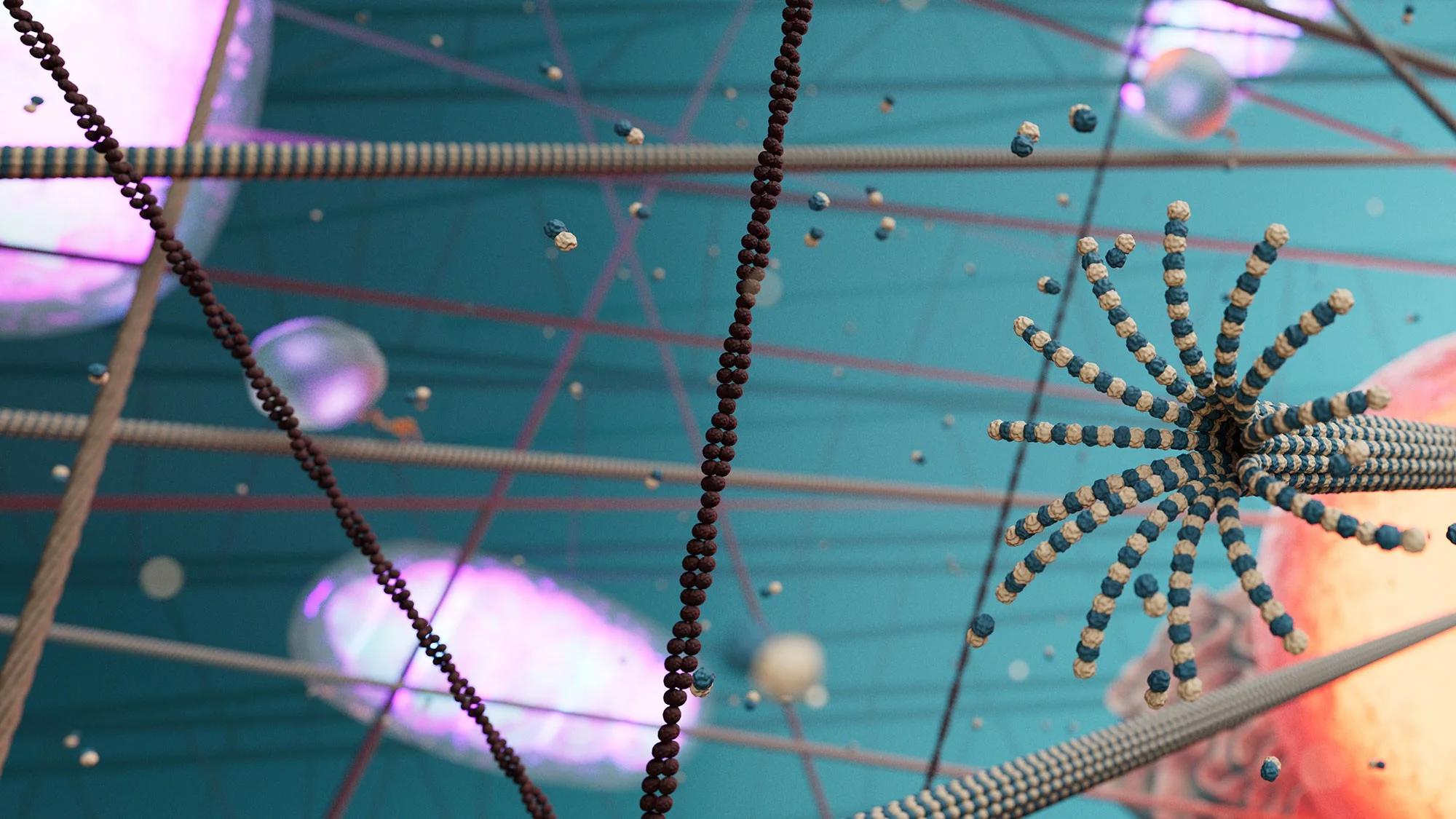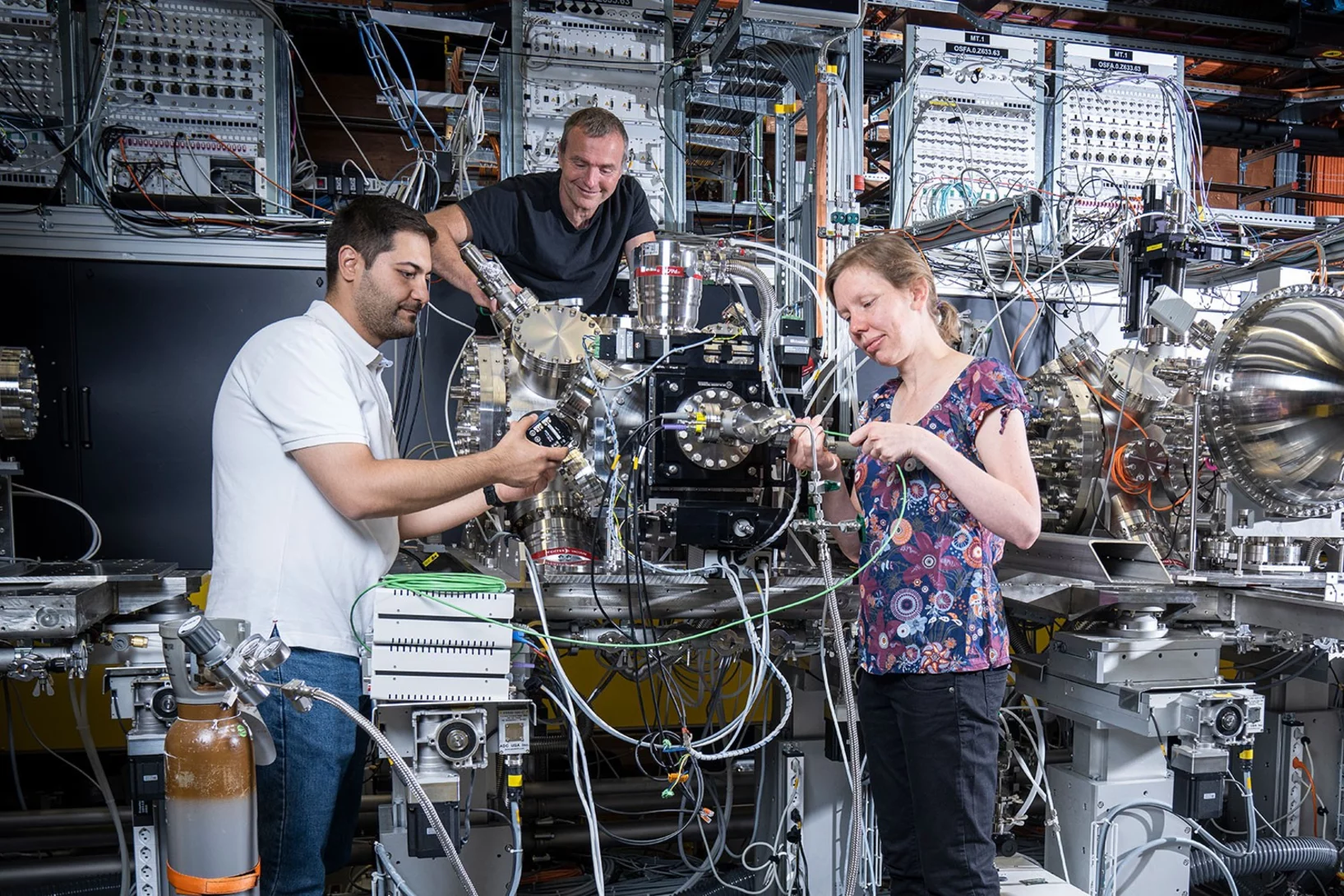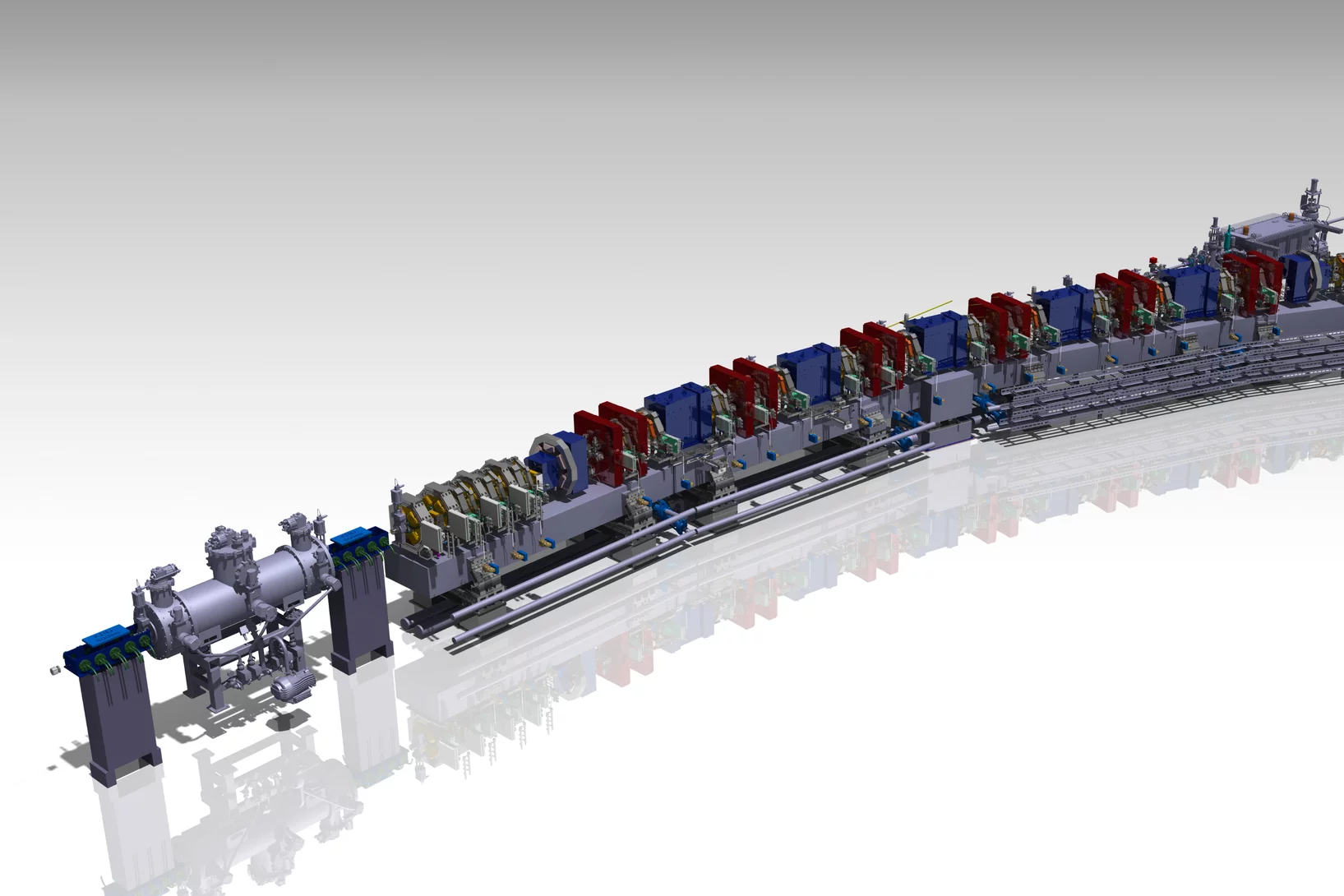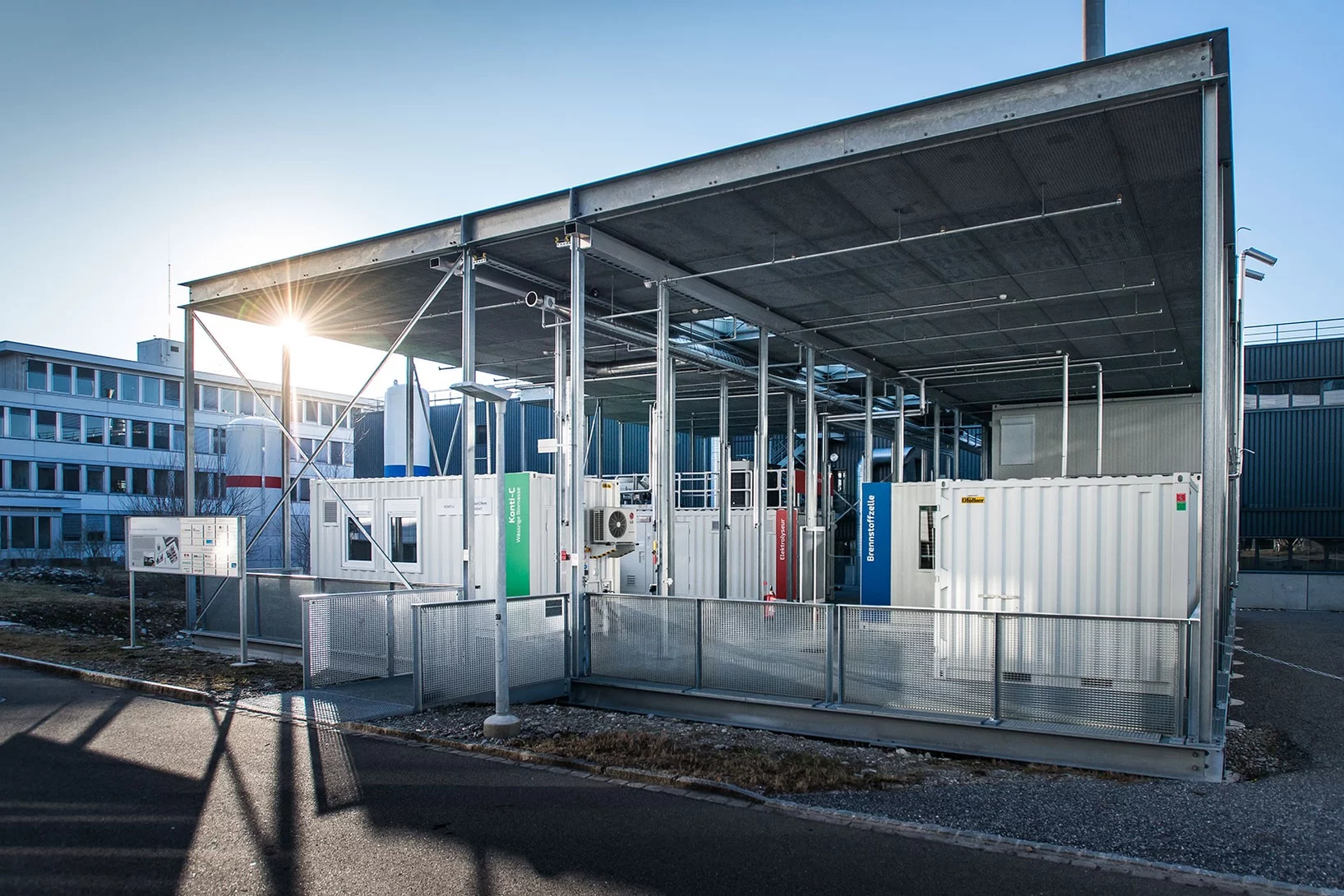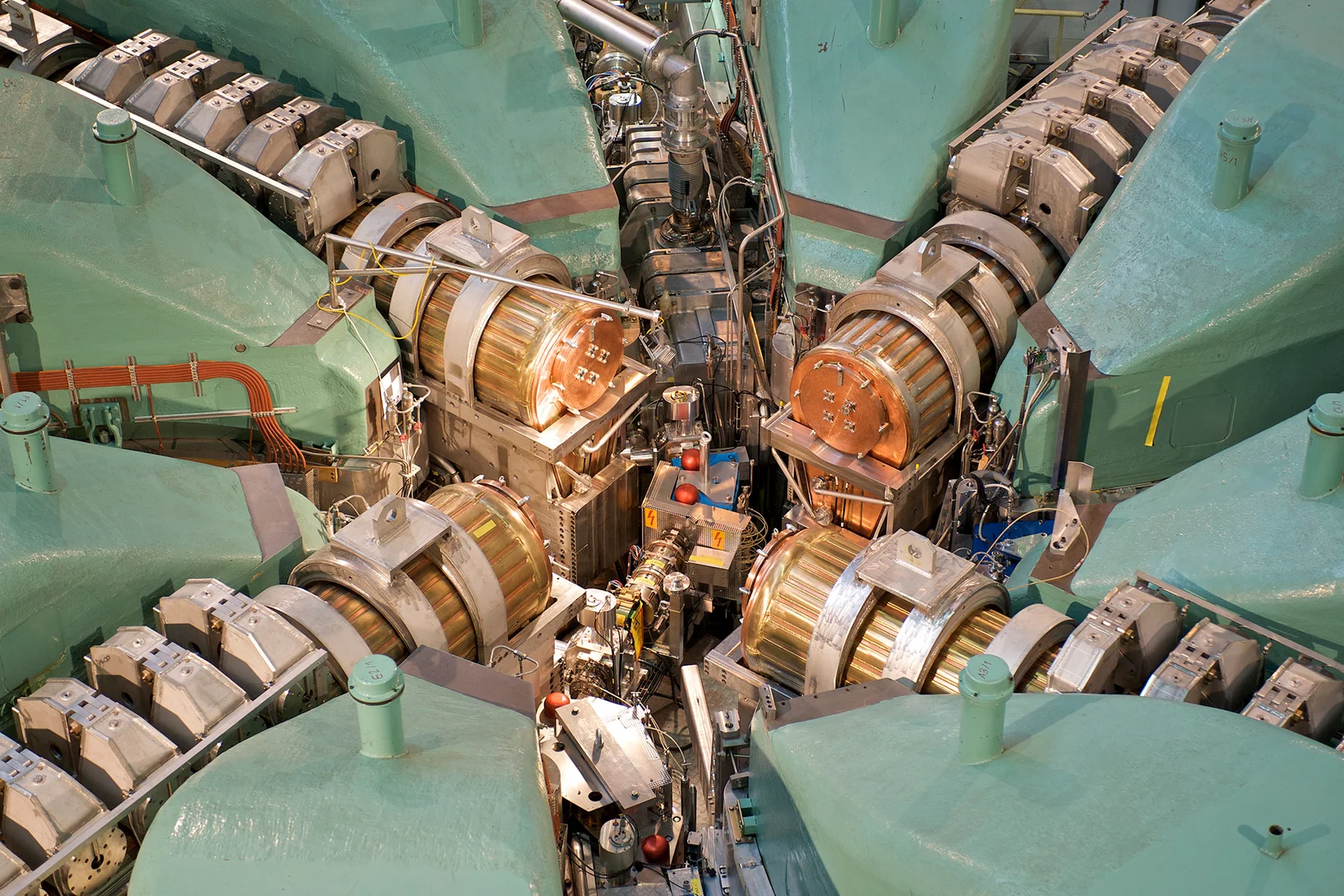Avec son infrastructure de recherche unique au monde, le PSI offre des possibilités exceptionnelles pour la recherche de pointe nationale et internationale.
Explorez nos domaines de recherche
Scientific Highlights de nos centres
Les polluants ne se forment souvent que dans l'air
Dans le cadre de l’expérience CLOUD au CERN, des scientifiques du PSI ont mesuré avec une précision jamais atteinte à ce jour comment les polluants atmosphériques organiques se forment et se répartissent.
Un incroyable succès
Araris Biotech AG, spin-off du PSI, obtient une valorisation au niveau «licorne»
Comment le Botox pénètre dans nos cellules
Des scientifiques du PSI ont identifié des modifications structurelles moléculaires de la neurotoxine bactérienne Botox qui sont importantes pour son absorption par les cellules nerveuses. Cela pourrait permettre à l'avenir des utilisations plus ciblées du Botox en médecine.
Vous souhaitez utiliser nos installations pour votre recherche?
Découvrez nos grands installations de recherche et autres infrastructures de recherche.
Les centres du PSI en un coup d'œil
Nos centres de recherche et de services mènent de la recherche de pointe reconnue au niveau international dans les sciences naturelles et les science de l’ingénierie et mettent à la disposition de la science ainsi que de l'industrie de grandes installations de recherche très complexes pour leurs propres projets de recherche.
Scientific Highlights de nos centres
Mapping crystallite orientation in bulk polycrystals
A new experimental technique allows the orientation distribution of small-grained polycrystal materials to me mapped in 3D.
Defect structure controls the thermal magnetic switching rate of nano-sized metallic particles.
Past experiments done at the Paul Scherrer Institut, probed the thermal switching properties of nano-sized metallic magnetic particles
PILATUS4 detector arrives at PXIII
On April 4, 2025, a Dectris Pilatus4 2M detector was successfully installed at beamline PXIII. In the coming weeks, this new detector will be used to measure the first macromolecular crystallography (MX) experiments using the SLS 2.0 machine.

